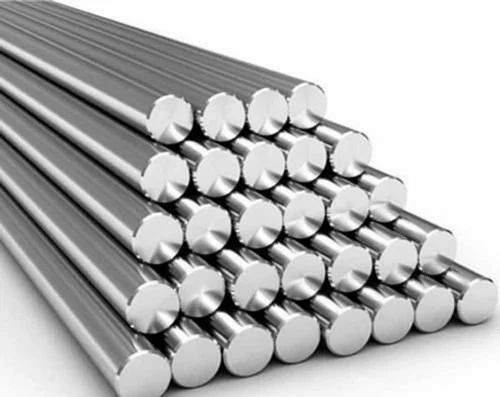A2 tool steel is a highly versatile, air-hardening tool steel prized for its balance of toughness, durability, and machinability, which makes it a popular choice for precision cutting tools. Its properties enable it to withstand high wear, maintain sharpness, and resist chipping, all of which are crucial for applications in industries requiring precise cuts and detailed work. In this article, we’ll discuss why A2 tool steel is ideal for precision cutting tools, highlight its defining properties, and explore how tool steel suppliers ensure quality for industrial applications.
1. Introduction to A2 Tool Steel: Composition and Characteristics
A2 tool steel is part of the A-series of air-hardening tool steels, renowned for their toughness and dimensional stability during heat treatment. The composition of A2 tool steel, which includes chromium, molybdenum, and carbon, gives it a unique mix of hardness and resilience. It is primarily used in applications where precise cutting and fine detailing are necessary.
Tool steel suppliers often recommend A2 tool steel for cutting tools due to its wear resistance, which allows it to maintain sharp edges under demanding conditions. The air-hardening process further enhances its hardness without the need for additional treatments, making it more durable than other tool steels and a reliable choice for high-precision work.
2. Superior Hardness and Wear Resistance of A2 Tool Steel
One of the primary reasons A2 tool steel is favored in cutting tools is its excellent hardness, which translates directly to increased wear resistance. Unlike many other steels, A2 tool steel hardens through air cooling, minimizing the distortion that can occur with other hardening processes. This ability to maintain its shape makes it suitable for precision cutting tools that require exact dimensions.
For tool steel suppliers, ensuring the right hardness level in A2 tool steel is essential. The Rockwell hardness of properly treated A2 tool steel typically ranges from 57 to 62 HRC, which strikes a good balance between hardness and toughness. This makes A2 ideal for applications such as die-cutting, blanking, and stamping tools, where a hard edge is essential for longevity.
3. Toughness and Resistance to Chipping in A2 Tool Steel
In addition to hardness, A2 tool steel’s toughness makes it less likely to chip under stress. This is particularly important for precision cutting tools, which must endure repeated impact without failing. The unique composition of A2 tool steel provides the strength to handle these impacts while retaining sharp edges.
Tool steel suppliers point out that A2’s toughness enables it to withstand high-pressure applications, making it an ideal choice for tools that operate under repetitive or shock loading conditions. Unlike more brittle steels, A2 resists chipping, which is essential for cutting tools in woodworking, metal fabrication, and machining industries where sharpness and edge retention are crucial.
4. Dimensional Stability in A2 Tool Steel During Heat Treatment
Dimensional stability is critical in precision cutting tools because even minor distortions can lead to inaccuracies. A2 tool steel is specifically formulated to maintain its shape and size through the heat-treating process. This stability is due to the low distortion properties of A2 when it is air-hardened, making it a reliable choice for tools that demand exact specifications.
When working with tool steel suppliers, manufacturers can trust that A2 tool steel will maintain its precise measurements, even after hardening. This is a distinct advantage for industries that rely on exact tolerances, such as aerospace, automotive, and medical device manufacturing, where precision is paramount.
5. Enhanced Machinability of A2 Tool Steel
In the production of cutting tools, machinability is a significant factor, and A2 tool steel offers excellent machinability compared to other high-hardness tool steels. The composition of A2 allows it to be machined effectively without excessive tool wear or degradation, which can be costly and time-consuming in production environments.
Tool steel suppliers emphasize A2 tool steel’s workability as a benefit for toolmakers who need to shape, grind, and polish cutting tools. This machinability does not compromise its strength or durability, making A2 a practical choice for manufacturers producing high-precision, complex cutting tools like milling cutters, reamers, and punches.
6. Corrosion Resistance and Surface Finish in A2 Tool Steel
Although A2 tool steel is not stainless, it exhibits a degree of corrosion resistance that makes it suitable for applications exposed to less aggressive environments. The chromium content in A2 contributes to this corrosion resistance, enhancing its lifespan in environments where mild exposure to moisture or corrosive elements is likely.
Precision cutting tools, especially those used in areas where exposure to moisture is possible, benefit from A2 tool steel’s surface integrity. Tool steel suppliers often provide options for additional coatings or treatments to further improve corrosion resistance, ensuring that A2 tool steel tools maintain a high-quality finish and sharpness even in challenging settings.
7. Applications of A2 Tool Steel in Precision Cutting Tools
A2 tool steel’s properties make it suitable for a wide range of precision cutting applications. The steel’s combination of hardness, wear resistance, and machinability makes it ideal for tools that require fine detail and high tolerances. Some of the applications include:
Die Cutting and Stamping:** A2 tool steel’s hardness and resistance to wear make it a preferred choice for dies and stamping tools, which must maintain sharp edges over prolonged use.
Milling and Drilling Tools:** The machinability of A2 allows for complex shaping, making it a favorite for milling and drilling tools where fine tolerances are essential.
Woodworking Tools:** Precision cutting in woodworking benefits from A2’s edge retention, as it holds up well under repeated impacts and offers smooth, clean cuts.
Tool steel suppliers often recommend A2 tool steel to manufacturers looking to produce long-lasting, high-quality tools for these industries. Its versatility ensures that A2 tool steel can adapt to various cutting tool needs across sectors.
Working with Reliable Tool Steel Suppliers for Quality Assurance
For companies that depend on precision cutting tools, partnering with reliable tool steel suppliers is essential to ensure consistent quality and performance. A2 tool steel must meet specific standards in hardness, toughness, and dimensional stability to be effective in precision applications, and reputable suppliers ensure these properties through rigorous testing and quality control.
Tool steel suppliers who specialize in A2 tool steel can provide valuable insights into the material’s properties and recommend appropriate treatments to maximize its performance in cutting applications. This partnership allows manufacturers to produce tools that meet industry demands for accuracy, durability, and resilience.
9. Future Trends in Precision Cutting Tools and A2 Tool Steel
As industries continue to advance, the demand for high-performance materials like A2 tool steel in cutting tools is likely to grow. Precision tools are essential in sectors such as robotics, automation, and medical device manufacturing, where tolerances are becoming increasingly exacting. A2 tool steel’s unique balance of toughness, hardness, and machinability positions it as a material of choice for these future-focused applications.
Innovations in tool design and manufacturing may also drive the demand for A2 tool steel, as it allows manufacturers to produce intricate and precise tools. Tool steel suppliers are actively researching ways to further enhance A2’s properties to meet the evolving needs of the precision cutting industry, ensuring that it remains a competitive choice in the years to come.
Conclusion: Why A2 Tool Steel is a Prime Choice for Precision Cutting
A2 tool steel’s combination of hardness, toughness, wear resistance, and machinability make it an ideal material for precision cutting tools. Its ability to retain sharp edges, resist chipping, and maintain dimensional stability even after heat treatment means that A2 tool steel can meet the high standards demanded by modern industries.
For manufacturers, working with reputable tool steel suppliers ensures access to high-quality A2 tool steel that meets industry specifications and performance requirements. As demand for precision cutting tools grows, A2 tool steel will continue to be a go-to material, trusted for its durability, resilience, and effectiveness in creating tools that excel in accuracy and longevity.










